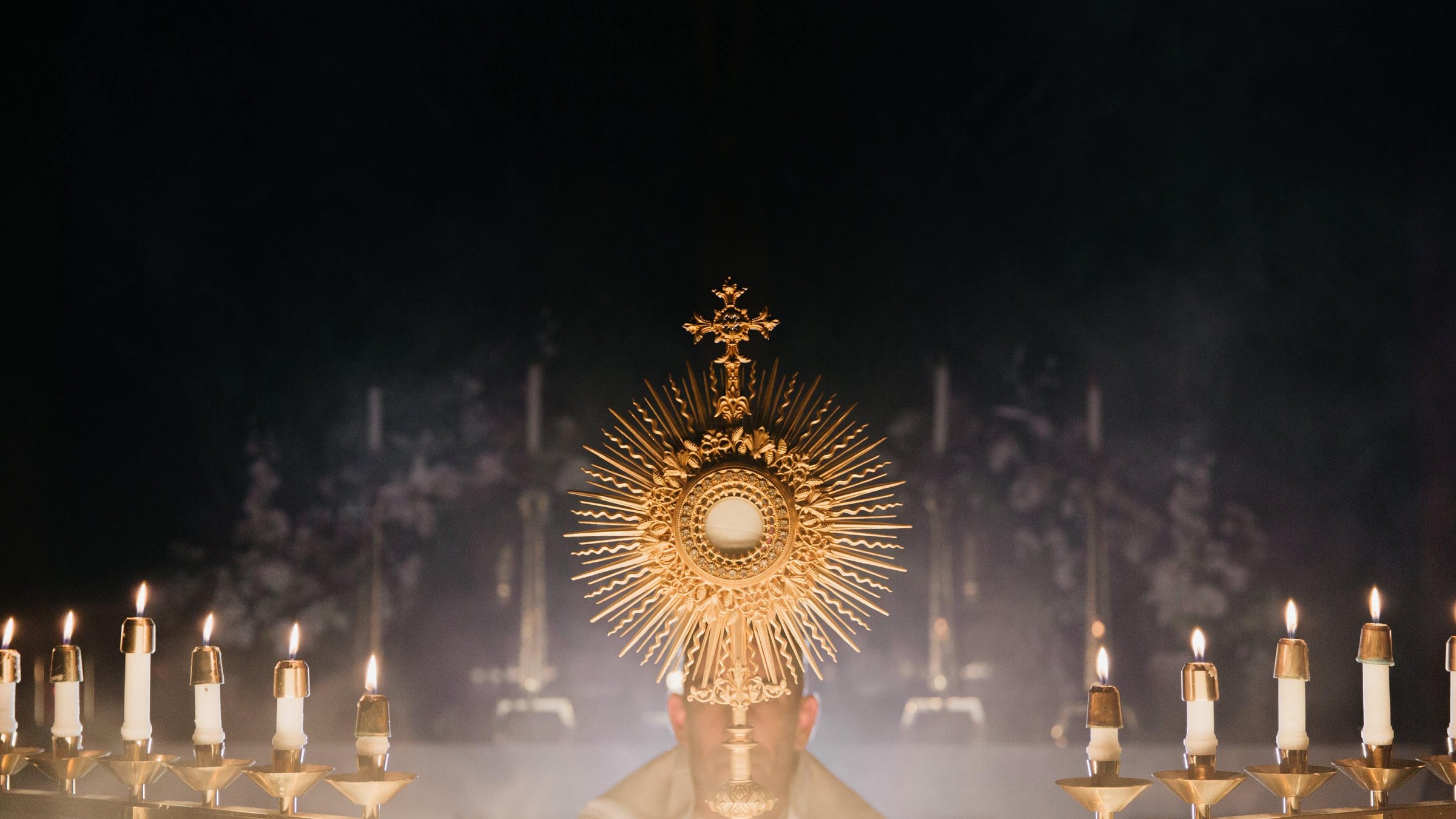This year, I am studying and living at The Catholic University of America in Washington, D.C. Every day on the way to our chapel in one of the buildings on campus, I see a poster in the hallway, which quotes St. Thérèse: “The world is thy ship and not thy home.” We are not meant to stay here; we are only, as it were, passing through. Our true home is not here but heaven. And yet I know, as I begin to mount the three flights of stairs that lead to our chapel, that room where my Spouse dwells in the tabernacle is my home — my heaven here on earth. For the Blessed Sacrament is Jesus Himself, and wherever He is, is heaven.
Our life as Catholic Christians must be utterly Eucharistic. His presence in the Holy Eucharist is the very “source and summit” of our lives, of all that we are and all that we do as His disciples (see Catechism of the Catholic Church, 1324). He alone gives meaning to every cross, every sorrow, every joy. Without Him, how unbearable would be this valley of tears! But in the light of His presence, each moment finds new significance and purpose.
I am currently in a class on the Eucharist, with mostly seminarians as my classmates. At the beginning of the semester, our professor asked us to introduce ourselves and give some sort of testimony to our personal experiences of the Eucharist. Very many of us spoke in some way of how the Eucharist had led us to our vocations. Priestly and religious vocations are recognized and responded to when the Eucharist is given precedence. And it is the Eucharist, too, which is the fount of holy marriages. If we want to see reform or revival in the life of the Church, we must turn to the Eucharist. We must receive Him worthily frequently and worship Him in adoration.
During my freshman year in high school, I made a commitment to visit the chapel on campus for at least a few minutes every day. What began as a sort of sense of duty soon grew into a true desire. The more time we spend in the presence of the Eucharist, the more we long for Him, and the more we come to realize that He alone can fulfill the desires of our hearts. Spending this time with Him also led me to long to receive Him more, and by college I began attending daily Mass. My desire for religious life was nurtured through these Masses and moments of adoration.
While not every vocation leads itself to daily Mass or adoration, the Eucharist is still meant to be the “source and summit” of the life of each Christian. How does your life as a disciple of Christ flow from His presence in the Eucharist and lead you back to Him there as the apex of your existence? Small steps to cultivate a more Eucharistic spiritual life can go a long way: arriving to Sunday Mass a few minutes early for some extra time of prayer in His presence; stopping by a local Eucharistic adoration chapel even if just for a few minutes during a lunch break or on the way home from work; reading the Sunday Mass readings as a family before attending Mass in order to assist everyone in prayerfully attending to the Mass; praying with Bible passages that refer to the Eucharist, especially John 6; and reading books about the Eucharist are just a few examples of ways we can cultivate our Eucharistic devotion.
If we desire renewal in our own lives and in the life of the whole Church, let us repeatedly turn to the Eucharist, and we shall find true life and be led to our true home.
Sr. Mary Martha Becnel is a member of the Ann Arbor-based Dominican Sisters of Mary, Mother of the Eucharist.












